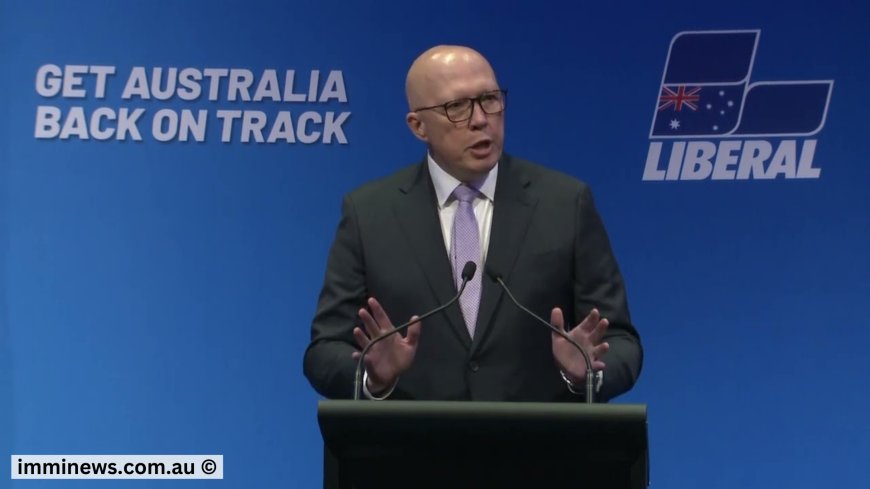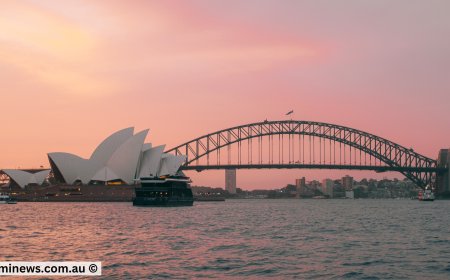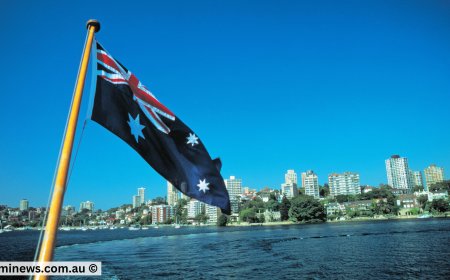Australia Immigration in 2025: Dutton’s Bold Plan Explained
Peter Dutton vows to cut Australia's net overseas migration by 100K if elected. Labor slams the plan, warning of major job losses and economic risks.

Peter Dutton's latest immigration pledge has reignited a fiery debate in Australian politics. Declaring he would immediately cut net overseas migration (NOM) by 100,000 if elected, Dutton is targeting what he sees as the root of Australia's housing and infrastructure woes. But Labor is pushing back, calling the plan not only misguided but dangerously "savage," warning it would hurt critical industries like construction, aged care, and tourism. As Australia's immigration policy remains central to its post-pandemic recovery, this political showdown could reshape the nation's demographic and economic landscape.
Significance of Dutton's Proposed Migration Cuts
1. Impact on Australia’s Workforce and Critical Sectors
The Labor government argues that slashing NOM from 260,000 to 160,000 would gut industries that heavily rely on skilled migrants. Australia’s construction, aged care, and tourism sectors already face chronic labor shortages. Cutting the supply of skilled temporary visa holders could deepen these crises. Tony Burke, the Home Affairs Minister, emphasized that the government is already managing NOM reductions responsibly, and Dutton’s drastic plan could derail the workforce pipeline.
Moreover, international students and skilled workers contribute not just to labor markets but also to innovation, education, and knowledge transfer. These cuts would have a domino effect, hitting universities, small businesses, and research sectors that rely on skilled migration.
To explore visa options aligned with Australia's needs, readers can visit the A2Zimmi homepage.
2. Repercussions on Economic Growth and Business Sentiment
Peter Dutton claims that reducing immigration is the key to fixing Australia’s housing crisis. However, the Business Council of Australia has raised serious concerns. CEO Bran Black warned that steep migration cuts, particularly in temporary skilled migration and international education, could backfire by worsening skills shortages and hampering investments.
International education is Australia’s fourth-largest export, and restricting student intakes could mean billions lost in revenue. Businesses also face rising costs due to talent shortages. A policy that fails to balance migration with economic growth could trigger slower GDP growth and missed opportunities in key infrastructure and renewable energy projects.
3. Political Credibility and Policy Confusion within the Coalition
Dutton’s plan is not without internal contradictions. After months of walking back on specific NOM targets, the sudden recommitment to 160,000 has confused stakeholders and political commentators alike. Even within the Coalition, Shadow Treasurer Angus Taylor provided differing figures in his post-budget reply. This inconsistency has led Labor to accuse the opposition of mixing up permanent migration numbers with NOM figures, creating further uncertainty for policy planners.
Clear migration targets are crucial for state governments, industries, and service providers. Flip-flopping numbers undermine long-term planning and erode trust in government leadership.
4. Consequences for Australia's Housing Crisis
Dutton argues that cutting immigration will ease the housing crisis by reducing demand. Yet experts warn that such cuts may fail to address the real issue: housing supply. Labor claims its multi-billion-dollar investments in housing construction are a more sustainable solution. By blaming migrants for systemic housing problems, critics say Dutton risks scapegoating newcomers while ignoring deeper challenges such as zoning restrictions, slow approval processes, and infrastructure lags.
NOM includes temporary visa holders, many of whom don’t seek permanent housing or rely on shared accommodation. Reducing their numbers may do little to impact property demand but could heavily disrupt industries where these individuals work.
5. Broader Implications on Australia’s Global Image
Australia's international reputation as a welcoming destination for skilled migrants and students is part of its global identity. Policies that appear reactionary or exclusionary can have lasting consequences. Potential migrants may choose other countries perceived as more stable and immigrant-friendly.
As other nations ramp up efforts to attract global talent, Australia risks losing its competitive edge if migration policies are governed by short-term politics rather than long-term vision. This is particularly relevant in the post-pandemic era where labor mobility is key to global economic recovery.
Peter Dutton’s proposal to slash Australia’s net overseas migration by 100,000 may score political points with voters concerned about housing and infrastructure. However, Labor and business leaders argue it could derail critical sectors, hurt the economy, and damage Australia’s global reputation. While the debate continues, one thing is clear: immigration policy will be a central issue in the upcoming election.
For a deeper understanding of how immigration changes may impact your visa options or business, schedule a consultation with A2Zimmi to speak with trusted professionals.
Visit A2Zimmi or schedule a consultation here to get expert advice today!
What's Your Reaction?
 Like
0
Like
0
 Dislike
0
Dislike
0
 Love
0
Love
0
 Funny
0
Funny
0
 Angry
0
Angry
0
 Sad
0
Sad
0
 Wow
0
Wow
0









































































































